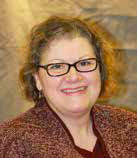Community EMT- for safety or the bottom line?
By Carolyn Jorgenson, RN, BSN
As a registered nurse for more than 36 years, I understand first-hand how important it is to reduce unnecessary hospital visits and readmissions. Nurses want nothing more than to take care of their patients and send them back to healthy lives in their own homes. If patients need nursing care in their homes, public health nurses are educated and trained to care for their ongoing medical needs.
Minnesota RNs have concerns about a proposal in the Legislature that could have serious impacts on patients who have just returned home from the hospital and need more care.
… Read more about: Community EMT- for safety or the bottom line? »







